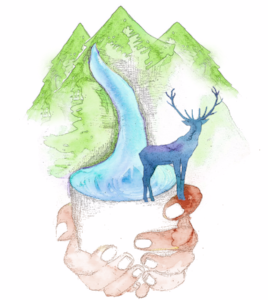New Great Ape Species
If you have not been following the science hype don't worry, I'm here to tell you. A new orangutan species, Tapanuli orangutan (Pongo tapanuliensis), has been discovered in Sumatra! This is the first new great ape species learned since 1929. Up until this point, biologists believed there were just two species of orangutan, one that lives on the island of Borneo and one on Sumatra.
The newly identified animal is found only in a single high-elevation forest called Batang Toru in western Sumatra and is estimated to have a population of fewer than 800 individuals. From the start, scientists noticed that these apes appeared different from other orangutans with flatter faces, smaller heads and frizzier hair. However, genetic test, field observations and a comparison of a male skeleton against 33 orangutan specimens in museums have revealed that in fact the Batang Toru group is a distinct species. What is interesting is the species are more closely related to their counterparts from Borneo, across the sea, than to the Sumatra orangutans living on the same island. The genetic work reveals that the oldest lineage belongs to the newest species.
More research is underway to study this new and endangered orangutan species. What is vitally important is to ensure that their habitat remains intact.
“We admit that we are like apes, but we seldom realise that we are apes. Our common ancestor with the chimpanzees and gorillas is much more recent than their common ancestor with the Asian apes—the gibbons and orangutans. There is no natural category that includes chimpanzees, gorillas and orangutans but excludes humans.”


